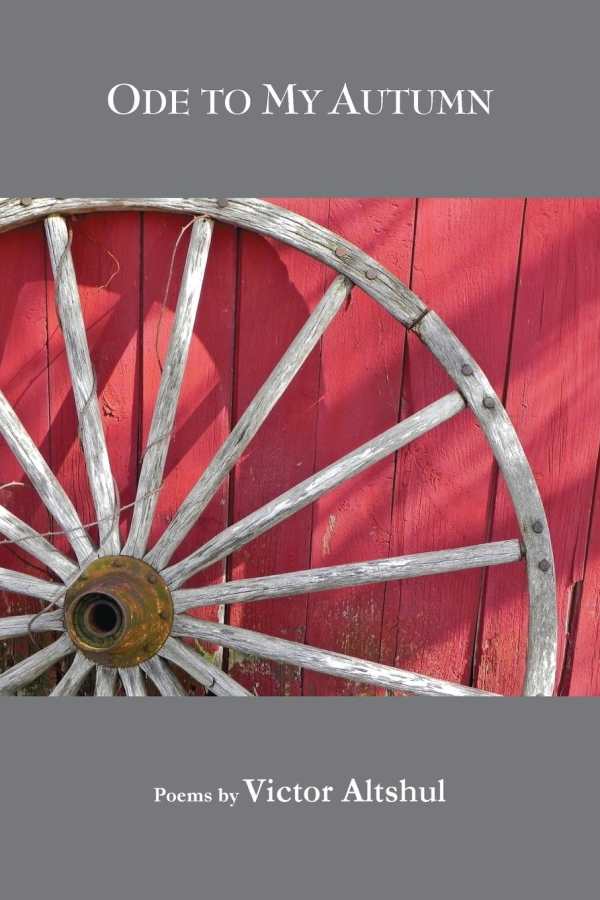
Ode to My Autumn
Ode to My Autumn contains dexterous, challenging, clever poems that are simply a joy to read.
Victor Altshul’s Ode to My Autumn is a collection of traditional poems with a great contemporary American poetic twist.
The most representative poems in the collection, which include “Years Before His Breakdown” and “The Way of the Clam,” typify a sense of loss and regret as the aging speaker recalls his youth. In “Years,” for example, he concludes that his younger brother’s mental and emotional breakdown “might have been averted if they’d / brought him with us on my ninth birthday.”
Straightforward lyrical poems such as “Portrait of a Lady,” “Valedictory,” and “Charlie” also examine the speaker’s family relationships, and they do so with elegance and indirectness that challenge and entice. The simple language of “Charlie,” a poem about the speaker’s relationship with the great-uncle who swindled his grandfather, begins with a hard tetrameter: “I said it only once to her; / I won’t risk saying it again.” Use of strict form and meter throughout the collection elevates the language and places it in the foreground.
With a title that alludes to John Keats, the collection makes use of classical poetic modes throughout. This is evident in the villanelle “Caddy.” Its two repeating lines—“I don’t know why you said she was a whore” and “You may have loved her but I loved her more”—illustrate not only the form’s required use of iambic pentameter, but also its requisite aba rhyme scheme, while the title is a complicated homage to William Faulkner’s The Sound and the Fury. Both form and content evince great rhetorical skill.
The poem “Insolence” also exemplifies the speaker’s regret about his lack of a sex life, his failed relationships, and his fear of impending death: “Not to whine, but this shriveled / and facsimile of manliness / does little but caterpillar expansion.” These poems examine universal experiences and complaints about the human condition.
Literary and cultural references abound in the second section of the collection, “Music and Words,” and the obvious intertextuality further complicates the poetic tradition in which Altshul compellingly engages. The poem “Dear Emily” is one of the most skillful; it resurrects Emily Dickinson, playing with the dash that she often used: “[T]hose dashes, Emily—those infernal dashes— / stopping, starting, stopping, starting again—”.
Ode to My Autumn contains dexterous, challenging, clever poems that are simply a joy to read. While they employ traditional poetic form and subject matter, they stand as model poems in the genre of contemporary American poetry.
Reviewed by
Philip J. Kowalski
Disclosure: This article is not an endorsement, but a review. The publisher of this book provided free copies of the book and paid a small fee to have their book reviewed by a professional reviewer. Foreword Reviews and Clarion Reviews make no guarantee that the publisher will receive a positive review. Foreword Magazine, Inc. is disclosing this in accordance with the Federal Trade Commission’s 16 CFR, Part 255.
